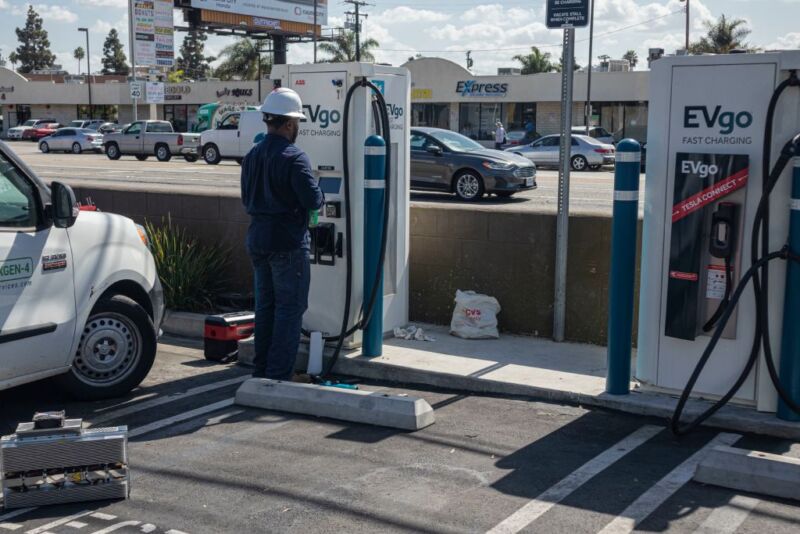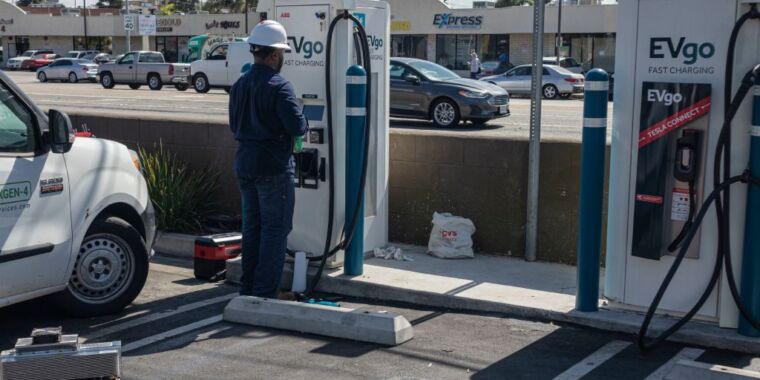
The lone statewide climate action on Tuesday’s California vote failed, even though it would have brought in billions to meet the state’s ambitious goals for reducing greenhouse gas emissions by subsidizing electric vehicles and charging infrastructure, among other things. . The demise was largely the result of the high-profile opposition of Governor Gavin Newsom, who has arguably worked harder than any other governor to position himself as a climate leader.
According to official ballots, Proposition 30 would provide funding for programs to reduce air pollution and prevent wildfires by raising taxes on personal income by more than $2 million. The approximately 35,000 Californians who earn more than $2 million would have to pay an additional 1.75 percent on income above that amount.
According to the state’s Legislative Analyst’s Office, the tax on these high-income people — 0.08 percent of Californians — would bring in about $3.5 billion to $5 billion annually.
A statewide poll conducted in September by the impartial Public Policy Institute of California, or PPIC, found that 55 percent of likely voters would vote yes to Prop 30, 40 percent would vote no, and 5 percent were unsure.
Then ads featuring Newsom calling Prop 30 a “trojan horse” started hitting TV and computer screens. “Fellow Californians, I must warn you about Proposition 30, a company’s cynical plan to get a massive taxpayer-funded grant,” Newsom said in a TV ad. The words “Warning” and “Don’t be fooled” appeared in large letters behind the governor.
“Prop 30 is advertised as a climate initiative, but in reality it was conceived by a single company to channel state income taxes in favor of their company,” he said.
The “single corporation,” excerpted from the text behind Newsom made clear, is Lyft, the measure’s largest backer. Ride-sharing companies, such as Lyft, must electrify 90 percent of the miles traveled by their fleet by 2030 as part of the state’s climate goals.
Newsom’s campaign against Prop 30 worked. A month after its ad blitz, support for the measure fell to 41 percent, with 52 percent against and 7 percent undecided, a statewide PPIC poll found just a month after finding majority support.
The main thing that boosted the no side between the two polls was a governor with favorable approval ratings running against the proposal, said PPIC president and CEO Mark Baldassare. And most of what the no-side had to say came from the governor who said, “I’m against this, we’ve already got this sorted, don’t be fooled.”
Once people hear things like “Don’t be fooled,” even for things they support, it’s relatively easy for them to vote no, Baldassare said.
It doesn’t matter if they are in favor of financing electric vehicles and taxing millionaires, he added. “If there is any sense that there is confusion or uncertainty among voters about initiatives, it is very easy for people to say no. That is why historically only about a third of initiatives succeed.”
Eighty percent of Democrats supported Prop 30 in the first PPIC poll before the governor opposed it, Baldassare said. “I think that raised doubts in enough people and gave them reason to pause and think, ‘Why do I want to support this?'”
Leading the Opposition
Newsom tops the list of opposition financiers, with his voting committee and campaign donating more than $1.8 million to defeat the measure, according to state campaign funding files.
Lyft donated the lion’s share of the $50 million in support of the proposal, along with members of a clean air coalition led by California Environmental Voters with support from the state Democratic Party.
Despite opposition rhetoric, nothing in the language of the proposal sends money to Lyft, said Bill Magvern, policy director for the Coalition for Clean Air, which supported Prop 30. “That is a hoax perpetrated by the opposition. There was nothing in it to favor a special interest.”
Someone who now drives for Lyft is eligible for a discount to buy an EV like everyone else, Magavern said. “The measure would not have changed that.”
In addition, the vehicle rebate money would have gone to the California Air Resources Board, or CARB, which regulates greenhouse gases, and the agency would then have discretion over how to spend it, Magavern said.
What’s more, supporters say, it wasn’t Lyft but environmental groups that came up with the idea for the proposal, which they did long before the ride-hailing company got involved.
Several environmental groups started serious discussions a few years ago about putting a measure on the ballot, Magvern said, “to really clean up transportation in California.”
Transportation is responsible for about half of the state’s greenhouse gas emissions, nearly 80 percent of pollution from toxic nitrogen oxides and 90 percent of particulate pollution from diesel engines, according to the state energy commission. Nitric oxide and particulate matter cause serious health problems by damaging the lungs and heart.

